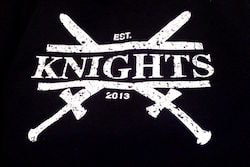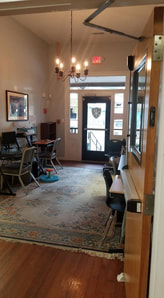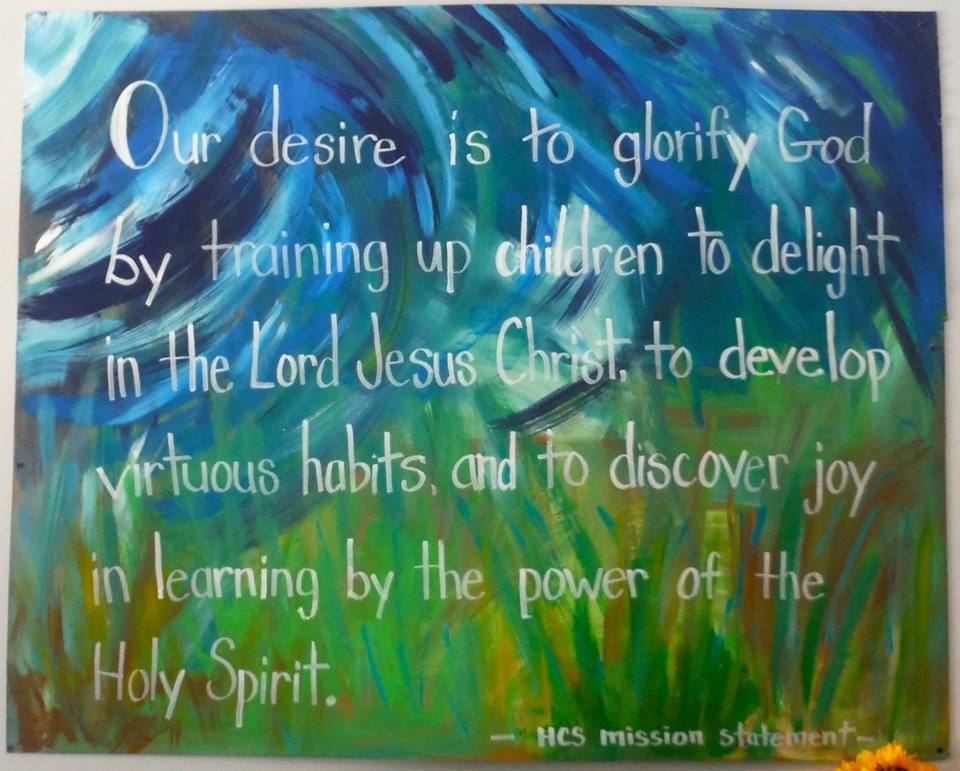We come alongside your child during the school week. We make time for prayer and Bible readings and memory verses. Christian schools do this but our distinctive is Charlotte Mason’s twentieth principle. We teach children that all truths are God’s truths, and that secular subjects are just divine as religious ones. Children don’t go back and forth between two worlds when they focus on God and then their school subjects; there is unity among both because both are of God and, whatever children study or do God is always with them. Just as the wind spreads seeds across a field, the Holy Spirit blows sacred ideas through all subjects. We follow Paul’s lead in sharing knowledge of God through His creation and His word. We study God's creative nature by immersing ourselves in nature. "The whole earth is filled with awe at your wonders; where morning dawns, where evening fades, you call forth songs of joy" (Psalm 65:8). We thrill a child with the idea that our Father made it all. Harvesters get steady doses of Vitamin W to nourish WONDER.
Charlotte Mason sorted knowledge into three broad fields: God, mankind, and the universe. The heart ponders the parable of the seed as the nose sniffs sage leaves and the mouth samples cherry tomatoes from our garden. The story “A Lesson of Faith” flashes into the mind as a caterpillar crawls across a little hand. The eye delights in the golden flash of a koi in our pond and the tattoo of a yellow-bellied sapsucker engages the ear. The child wonders about the One who made all these things. On the surface, the parable seems to be the only subject about God. However, the faith lesson is from a literature book (the knowledge of mankind) and nature study is science (the knowledge of the universe). The connections are there for the students to make. Another distinctive is that the Bible is our curriculum instead of textbooks and devotions. Children are born craving God and the Bible satisfies that hunger. Students read specific books in the Old and New Testaments and retell what they learned in their own words. They discuss what a passage means and what God is saying. Pastors and a biblical counselor join our discussions once a week. Moreover, developing the habit of reading to know and narrating what they know makes them more engaged listeners of sermons and podcasts. We want our students to know God by knowing His creation and His word and telling what they know.
0 Comments
 This week we'd like to let you know a little about us—why we started Harvest Community School and how we have grown as a community. In 2010, teachers and home educators in Clarendon County became interested in the methods of Charlotte Mason. We studied her books and started an enrichment day called The Friday Feast. We explored God’s handwork in the local swamps. We sampled fresh dewberries while dragonflies buzzed over our heads. We fed crickets to banana spiders and collected frog eggs to study their life cycle firsthand. We witnessed a mass aggregation of millipedes leaving their home site, a rare sight even for biologists. We met at a local church for the riches. Even the youngest children grew excited about reading and acting scenes from Shakespeare. They were enamored with Michelangelo’s frescoes in the Sistine Chapel which we paired with Genesis. They stretched their minds in the study of Plutarch. In individual homes, our children became avid readers of all kinds of books—classics, nature lore, biographies, and history! A few of us felt a nudge from God to start a private school rooted in Mason’s ideas. We thought back to our own education and we knew what we had missed in school. Should our children be the only lucky ones? What about students, failing to thrive because memorizing facts from dry textbooks is dull? In June 2013, the founders picked a name and filed legal documents. God flung open doors of opportunity one by one. By the end of August, we had two teachers, two classes, and our very own building. Many things have happened in the six years since we started Harvest. We have grown from eighteen students to sixty-five and now have eight classroom teachers. We modified the building to accommodate that growth and built our final addition last year. We were accredited in our third year and we have handed seven graduates their diplomas. We offer extra-curricular activities based on the interest of students—archery, 4-H, and chorus. You might be wondering why we put the word community in our name. Harvest is more than a place where children go to school. A well-rounded education ought to make students aware that they are connected to each another and to people in our area. We try to live by what Paul wrote to the Galatians. “Let us not become weary in doing good, for at the proper time we will reap a harvest if we do not give up.” We give students plenty of chances to do so. We visit the nursing home every week and we host and stock a blessing box to help others. Harvesters do chores and community service to practice the habit of doing good every day. When we began hosting violin classes, we opened up lessons to the community. We invite parents, school families, and homeschool families to The Feast and after school clubs. Harvest is part of the local community at large. Most importantly, we hope to be a place where the uniqueness of each person is respected. Students brimming with confidence can reach out to those who feel weighed down. Children who have felt overlooked know they are appreciated for who they are. We have seen that, when pupils are planted into a different environment, new growth blossoms into flourishing. For the past six years, we have seen a harvest of delight, devotion, and discovery. Hearts have become rich toward God. Lives have changed.  Welcome to Harvest! This year we’re launching The Foyer—our way to share with you a bit about our school. Students at Harvest thrive when their minds awaken to fresh ideas. Some are more talkative and observant. Others start to enjoy reading, drawing and writing, and making things with their hands. They are more open to going outside, spending time with their grandparents, and doing chores. During the year, we will share our insight so your family can reap the rich fruit of Harvest. This post starts you on that journey of discovering delight in learning. We hope that weekly snippets will whet your appetite to know more. The first step is to understand our mission. We hope that every child at Harvest eagerly seeks to learn about God, themselves, and their world. Our desire is to glorify God by training up children to delight in the Lord Jesus Christ, Our approach is described here in less than a hundred words. A Charlotte Mason education respects the child's dignity as an individual made in God's image. Harvest offers a wonder-filled experience for the whole family. Hours spent driving children to do homework can be devoted to doing what you value. Parents wonder why they see so much growth when we require so little homework. You can experience first hand by coming to The Tuesday and Thursday Feast for the riches. Classes combine to study art, music, and hand work. You may enjoy driving students on our weekly trip to the nursing home and see the love of God shared with people who don’t get many visitors. You might get to watch a lizard molting, sample sweet honeysuckle, or hear two chickadees calling to each other on our weekly nature walk. If you want to know more, come to the monthly large room meeting to be immersed in an element of your child’s day.
If you are eager to dig more deeply now, you may want to read For the Children’s Sake by Susan Schaeffer Macaulay. This book inspired teachers to launch Charlotte Mason schools in the Southeast thirty years ago. Know and Tell: The Art of Narration by Karen Glass addresses narration which taps into our natural desire to tell each other what is on our mind. The author interviewed our staff for her material on how narration looks in a classroom. If you have questions, feel free to contact the founders, Angie Bruner (our headmaster) or Tammy Glaser (our curriculum coordinator). |
HCSA community called to offer another way to learn for students in Clarendon County Archives
December 2019
|

 RSS Feed
RSS Feed
